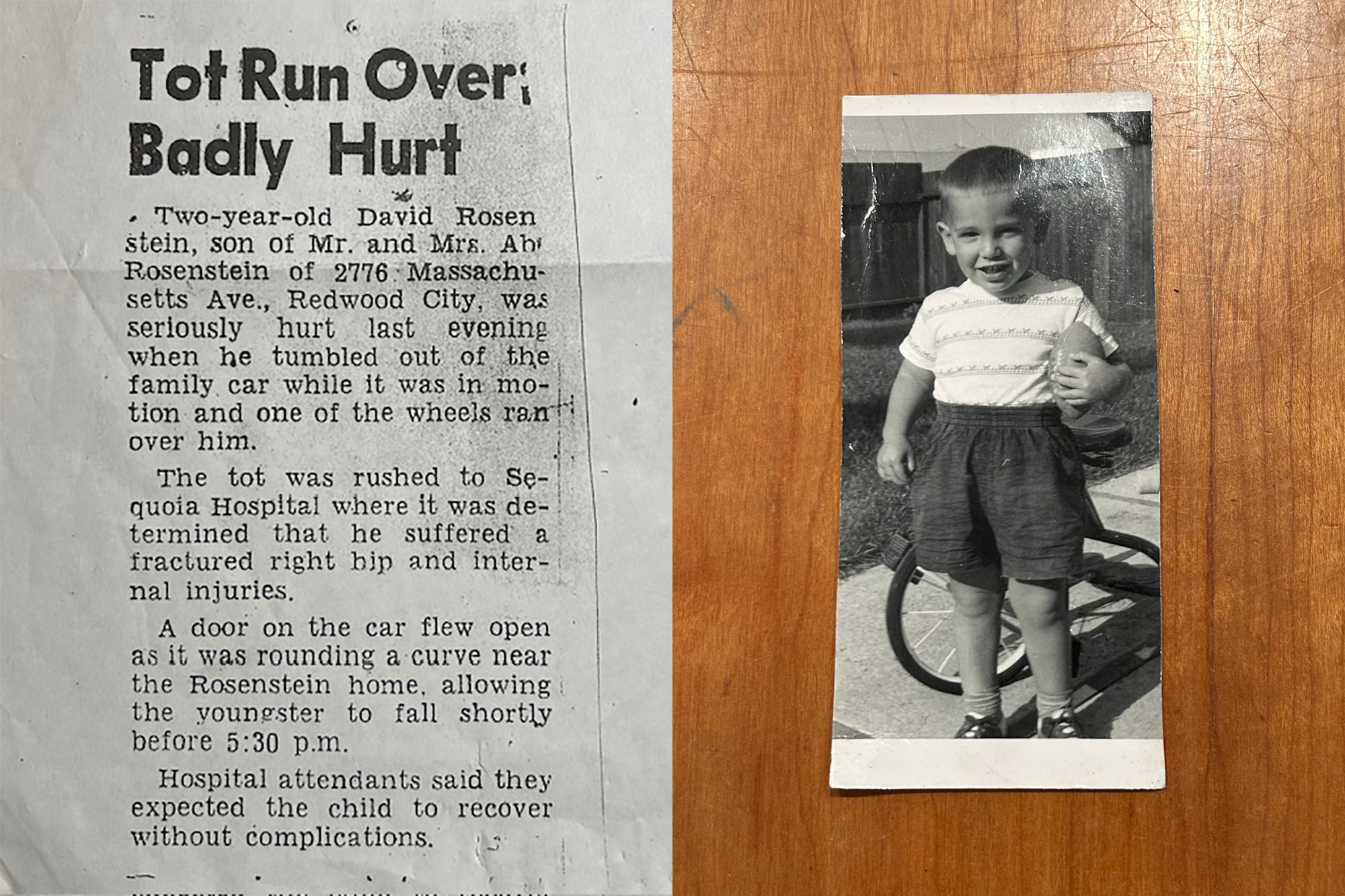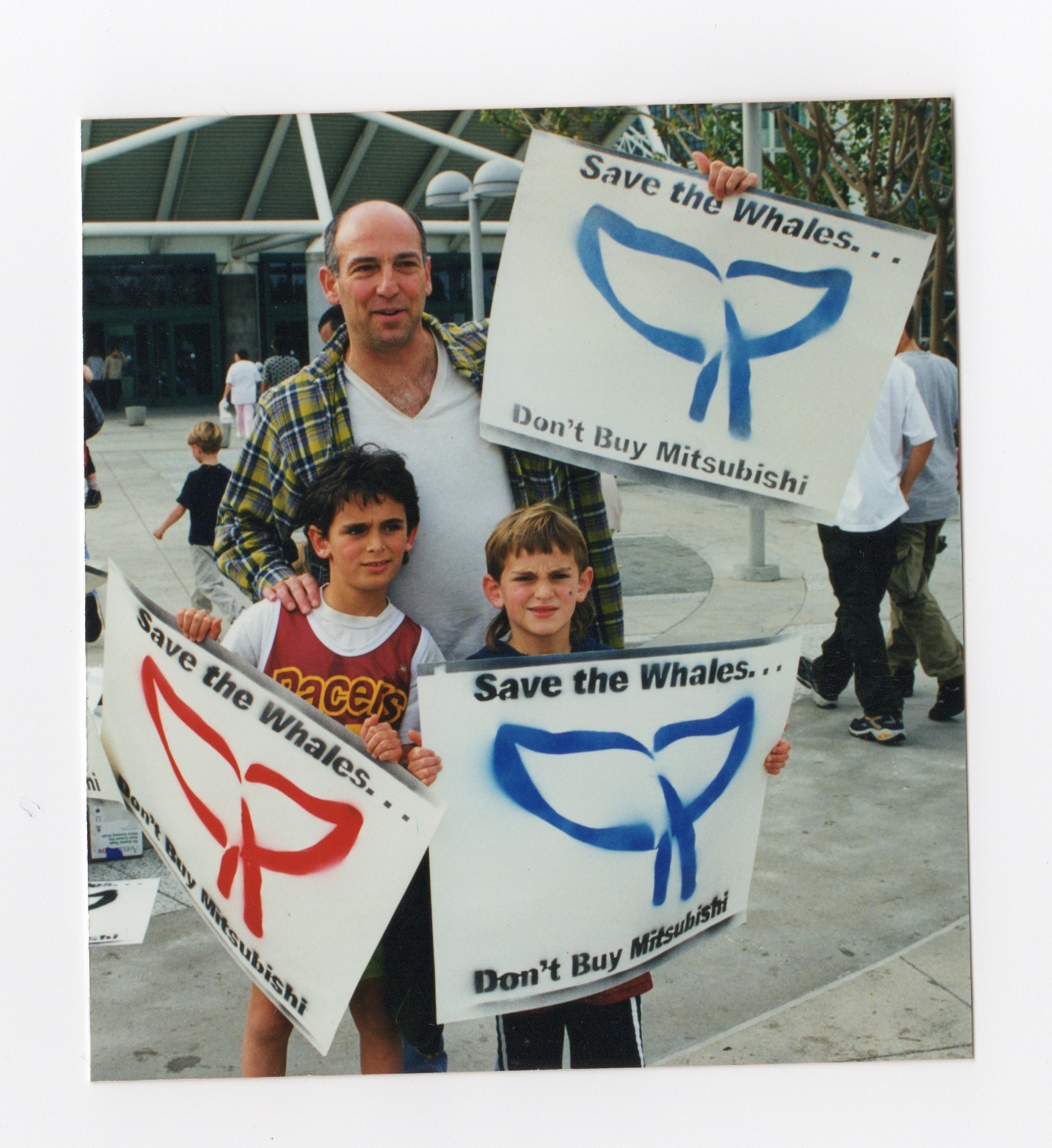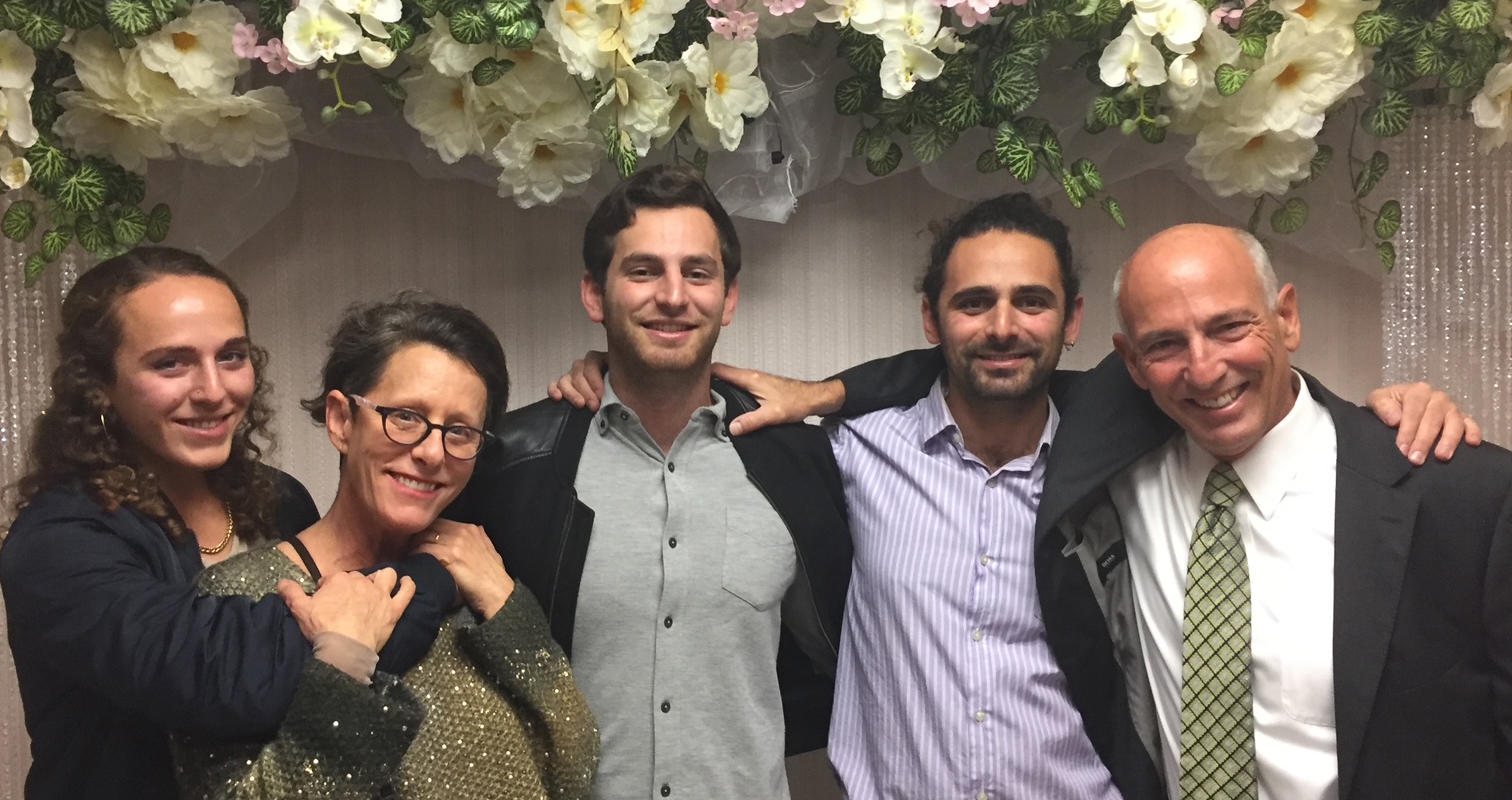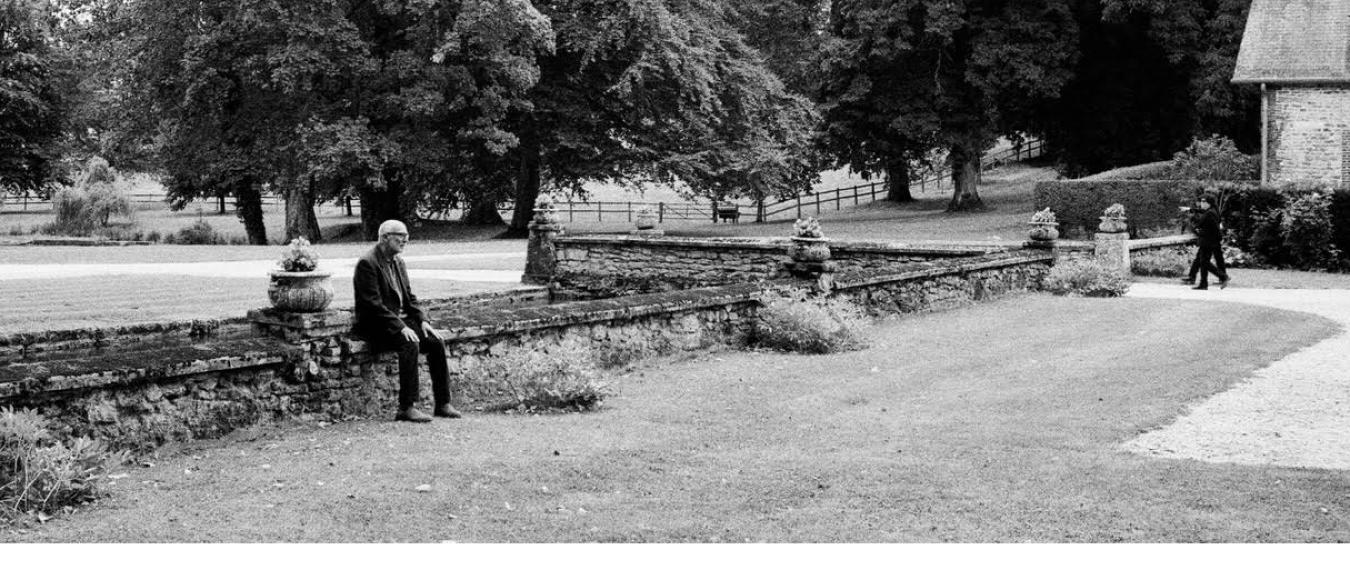Meditation ends meds merry-go-round
Like everyone, I’ve had trauma to overcome — but I earned some unique “bragging rights” on the early-childhood “trauma-ometer.” When I was two and a half years old, in 1954, I was run over by my mother in the family car.
According to the local paper, I fell out of the car as she was backing out of the driveway and she ran me over accidentally. My father, however, insisted I wasn’t in the car at all — I was behind it, and my mother simply didn’t see me.

Either way, the outcome was the same: weeks in the hospital in a full-body cast with internal injuries and a mother who could never look at me again without guilt and shame. Four years later my parents got a bitter divorce, partly because my father could never forgive her for the accident.
During those four years my brother Stuart was born, and he quickly took on the role of “bad boy”: heavy drug use at an early age, stealing his first car at about 11, building a long police record, and eventually dropping out of high school. At 38 he committed “suicide by cop.” A hard life, and a tragic end.
I’m thrilled to say that his son — my nephew Sky, who has his own complicated and challenging history with hardship, drugs, and crime — is one of the most wonderful people I know, and a vital, beloved part of my life.
In contrast to my brother, I was always the “good boy.” Outwardly, I was excelling in school and athletics, and trying to take care of people, community, and the planet. Yet inwardly I was sublimating deep pain, confusion and anger – there’s been a lot more trauma in my life. Depression running in the family, my father’s failed suicide attempts, and an aunt who would disappear into her bedroom every few years for weeks at a time with an “episode.” You get the picture.
To a large extent, I took what I saw and felt in my early family life with my parents (especially my father) and used it as a model of how not to live a life. Outwardly I was high-achieving and responsible, but just below the surface there was often anger, self-righteousness, and a deep sense of not being seen or heard.
By age 20, in 1972, all of this caught up with me, and I knew I needed help. I walked into my first therapist’s office to see Dr. Eric Dreikurs (long since deceased), just a few months before transferring from junior college to the University of California at Santa Cruz.
After a few sessions, Dr. Dreikurs gave me sound advice: “Don’t start college right away. Spend time in therapy first, working things through.” He was brilliant; the best therapist I ever had. I still hear his voice guiding me 50 years later. Thank you, Dr. Dreikurs!
It wasn’t until my late 20s, still in therapy, that I saw a psychiatrist who prescribed antidepressants. That launched a 45-year odyssey of being my own pharmacological guinea pig.
Like most people on antidepressants, I experimented until I found something that worked with minimal side effects… until it didn’t. Change the dosage. Add something new. Tweak the doses again. Try getting off altogether — until another depressive episode struck. Start experimenting again. Bad side effects. Add something. Drop something. Prozac, Celexa, Deplin, Lamictal, Paxil, Wellbutrin, Trazodone, countless “natural supplements,” sleep interventions, and more.
This pharmaceutical merry-go-round went on so long I can’t even recall everything I tried. It was profoundly exhausting. In my 40s I resigned myself to taking antidepressants for the rest of my life and even felt grateful they existed.

Life continued. I built a highly successful, industry-leading commercial carpet and textile cleaning company which is a model of environmentally and socially responsible practices. Love and family happened: I’ve been married to my wife, Tori, for 37 years — and she has shown me every day that love and care truly do support and heal. Ineffable gratitude to her. Together we’ve raised three amazing children, Gabe, Theo and Izzy, and our lives are woven with purpose and joy.
Then, at the beginning of COVID in 2020, at the age of 67, I tried something new: a daily meditation practice.
Something remarkable happened once I began meditating. I experienced a new relationship with my mind and emotions. I became less reactive. Now I am more able to let feelings arise, examine them, be curious about them, not identify with them as “me,” recognize they are fleeting, and let them pass.
Increasingly I am able to access space, ease, calm, relief and joy. It’s not easy or perfect and progress is slow. It requires vigilance and discipline to keep on track.
A weeklong silent meditation retreat was revelatory and profound. It deepened my practice and allowed me to begin processing early childhood trauma in ways therapy never had.
I want to thank my meditation teacher Dr. Christiana Wolf for being so present, empathetic, and caring in the moments I needed her. Also, my amazing body worker Ayala has been profoundly instrumental in helping me process and accept physical trauma.
During the COVID lockdown, the psychopharmacologist prescribing and guiding my meds went MIA (missing in action) — dealing with his own health and personal problems — and became completely unresponsive.
With my meditation practice I could see I had more control over how I responded to various stimuli that in the past might have triggered negativity, a bad mood or a depression. I’ve discovered how to be more fully present in the moment – not chewing over the past or fretting about the future. These new tools created new possibilities for me and the way I manage my mental health.
For 16 months, without medical supervision, I slowly and carefully — with lots of documentation — titrated off all the meds. One of my life mantras is “small steps consistently taken” and I put that attitude into practice. Not once during that time did I need to “backtrack” or reinstate even a reduced dosage.
I have to admit, I didn’t think I’d get off all the meds when I started. It wasn’t the goal, but I’m so glad it was the ultimate outcome. I feel an enormous sense of accomplishment and relief that what I think, do and feel is fully me without the intervention of the drugs AND that I am no longer spending my money supporting the pharmaceutical med-industry.
Now I’ve been completely off all psychopharmacological aids for five years. With a daily meditation practice and periodic silent retreats, I’ve never felt better, happier, or more at ease in the world. Certainly some of that comes from life experience — retiring from work, finding meaning in volunteering, and facing my own mortality with courage — but meditation has been the foundation.
How miraculous is it that this technique helped me connect with my own inner compass in a completely new way and start a new chapter at age 67!?
I still take some medication for blood pressure – which has improved substantially as well. I now have the demonstrated ability to relax, breathe deeply and lower it when under stress.
Whenever I see a doctor, I often share a short version of this story to encourage them to consider non-traditional, pharmaceutical-free protocols as alternatives to pharmaceuticals.
The western medical profession — along with the insidious influence of big pharma and the collusion of our government — is complicit in medicalizing conditions that could, in many cases, be treated in more benign, beneficial, inexpensive, and non-invasive ways.
We know so little about the brain, mood disorders, and the myriad factors that influence them: diet, pollution, environmental stressors, drug interactions, exercise, social relationships, pets, friends, early childhood experiences, and genetics. It’s an incredibly complex mix that has no single, simple, or necessarily enduring answer.

If you saw me today you’d never know I had that terrible accident 71 years ago. I fully recovered and am strong and active — with the usual travails of aging.
Now my life is deeply rooted in activism, family, and service. In recent years I’ve poured much of my energy into environmental and climate activism, volunteering with Third Act and other organizations dedicated to safeguarding democracy and the planet. From being arrested at protests to lobbying legislators, I feel a profound sense of coherence between my deepest values and my daily actions.
My experience is my experience and may or may not be applicable to many others; but I am profoundly grateful to be alive, doing all I get to do.
“With each breath I begin to trust that this very moment contains all the ingredients I need to be content, to be aware and meet life as it’s unfolding with clarity, courage and the deep kindness of my commitment to show up and be present in this life” –Trudy Goodman meditation

